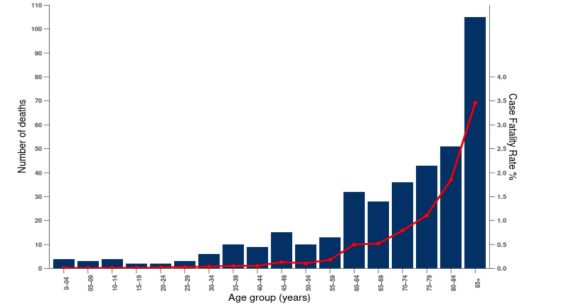Get your flu shot now: Warning ahead of early flu season

Source: Australian government, Department of Health
Australians are being encouraged to get flu vaccines as soon as possible, with this year’s flu season to hit earlier than usual.
May to October are the traditional influenza season months, but this year virus could hit by late April, Deakin University chair in epidemiology Catherine Bennett told The New Daily.
Department of Health and Aged Care data shows for the past two years, influenza and flu-like illness activity increased sharply in early May and peaked in June.
Bennett said there was another peak of flu cases during the recent Christmas season, and numbers hadn’t fallen as much as they would have in the past.
“People’s vaccination rates dropped, because they were either focused on Covid or over vaccines altogether,” she said.
“They may not have been exposed as much to flu last year, particularly as the peak was quite early … and the combination of not being exposed to the virus in the community or [not having a recent] booster for flu can leave you quite vulnerable.
“Finally … it depends on what strains come in from the northern hemisphere. And because they’ve had a bad flu season, that tells us that we have to prepare for that same possibility.”
With the flu cases expected to spike by the end of the April or during May, now is the time to get your flu shot.
Why should you get vaccinated?
Although the flu might seem common, that doesn’t mean it’s not unpleasant or sometimes life-threatening.
The clinical severity for the 2023 influenza season was considered low, but the number of deaths in children under 16 was higher than in many pre-Covid years.
A total of 376 influenza-related deaths of adults and children were reported to the National Notifiable Disease Surveillance System last year.
From April on, there were 3696 influenza-related hospital admissions reported, including 256 who were admitted to intensive care.

Influenza-associated deaths and case fatality rate by five-year age group, January 1-October 15, 2023. Source: Department of Health and Aged Care
This year’s flu vaccine will also be updated to match the influenza strains most expected to circulate this season.
Vaccines take a couple of weeks to take effect, and give you coverage for about six months, Bennett said.
“The flu is awful, and puts people in hospital – even young, fit, well people can end up in hospital with pneumonia. So you shouldn’t be complacent,” she said.
“It’s a bit hard when we’re still in autumn and it seems OK. But because we’ve seen this pattern [of] earlier peaks, we just don’t have the same lead time in the past.
“Start thinking about vaccination in April to be ready by May, June.”
Additional safety measures
If you have symptoms, you should avoid other people, especially in enclosed indoor spaces.
“It’s just not fair to other people to put them at risk,” Bennett said.
She said wearing a mask, especially when taking public transport, could also mean the difference between getting enough virus in your system to become sick versus getting just enough to build up your immune system.
And with another Covid wave likely to coincide with the flu season, you should check if you’re also eligible to get a Covid booster shot.
“Vaccination doesn’t guarantee you won’t get an infection, but a mild infection last time doesn’t mean it’s necessarily gonna be mild this time, [and] a vaccine will help make that a bit more likely,” Bennett said.
“Importantly … vaccines have been shown to be protective against developing long Covid.”








